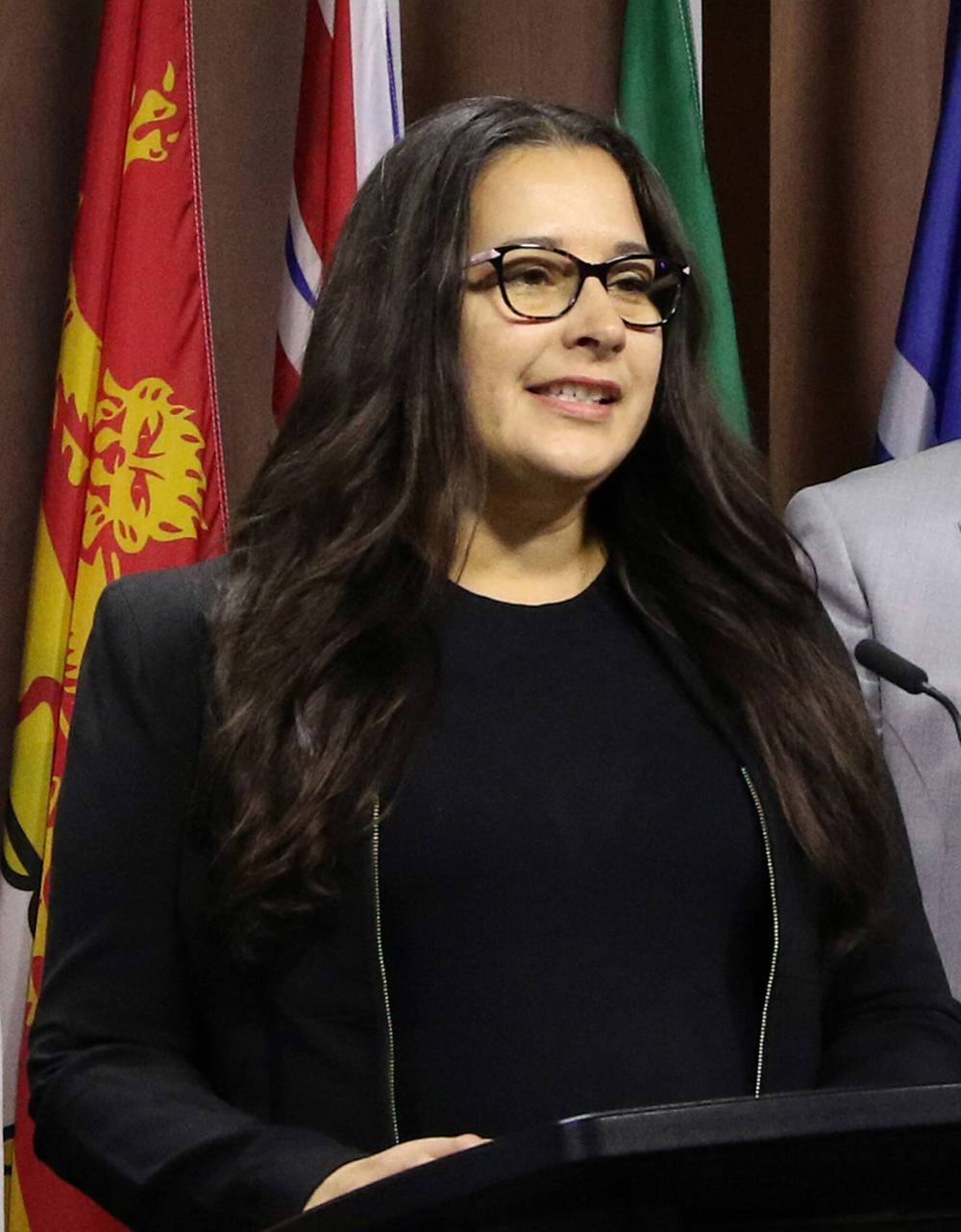‘It’s so nice to be able to make an impact’
Indigenous chiropractor hopes non-profit clinic’s funding will be renewed
Advertisement
Read this article for free:
or
Already have an account? Log in here »
To continue reading, please subscribe:
Monthly Digital Subscription
$0 for the first 4 weeks*
- Enjoy unlimited reading on winnipegfreepress.com
- Read the E-Edition, our digital replica newspaper
- Access News Break, our award-winning app
- Play interactive puzzles
*No charge for 4 weeks then price increases to the regular rate of $19.00 plus GST every four weeks. Offer available to new and qualified returning subscribers only. Cancel any time.
Monthly Digital Subscription
$4.75/week*
- Enjoy unlimited reading on winnipegfreepress.com
- Read the E-Edition, our digital replica newspaper
- Access News Break, our award-winning app
- Play interactive puzzles
*Billed as $19 plus GST every four weeks. Cancel any time.
To continue reading, please subscribe:
Add Free Press access to your Brandon Sun subscription for only an additional
$1 for the first 4 weeks*
*Your next subscription payment will increase by $1.00 and you will be charged $16.99 plus GST for four weeks. After four weeks, your payment will increase to $23.99 plus GST every four weeks.
Read unlimited articles for free today:
or
Already have an account? Log in here »
Hey there, time traveller!
This article was published 11/03/2024 (631 days ago), so information in it may no longer be current.
Jennifer Ward’s patients just want to be able to chop wood, ride their snowmobile or skin game without being in pain.
“I am the only chiropractor in all of Canada to practise full time in a First Nations community, and we’re hoping to change that. Our goal is that Indigenous communities across Canada will have access to chiropractic (care),” said Ward, who opened a clinic on Opaskwayak First Nation, near The Pas, more than 20 years ago.
Ward, who is Mi’kmaq from Natoaganeg First Nation in New Brunswick, started a non-profit spinal clinic in Cross Lake five months ago. She spends two days a week running the clinic, which doesn’t charge patients, with one other chiropractor and no administrative staff.

It’s funded by Health Canada and contributes to research about how access to spine care can reduce reliance on opioids and other addictive painkillers. It operates via a partnership with World Spine Care Canada and Pimicikamak First Nation.
While it has a wait list of patients, its funding expires next month.
Ward said treating patients at no cost to them has been rewarding and she hopes the pilot project will get additional funding.
“It’s so nice to be able to make an impact, a meaningful impact, in the lives of community members whether they can afford it or not.”
It’s part of her two-fold goal: make the profession welcoming to Indigenous students, and expand access to chiropractic treatment in Indigenous communities.
“I’ve worked for the past 20 years trying to bring people into my profession… and now for the next 20 years, I want to bring my profession to the community. Because we can’t just say, ‘oh, Indigenous people aren’t utilizing the services.’ We need to say, what needs to be done to increase the utilization of the services?”
Ward said she’d like to see changes to federal non-insured health benefits to allow First Nations residents to get coverage for chiropractic treatments, and wants to see federal student-loan forgiveness programs that benefit newly graduated nurses and doctors extended to chiropractors in northern communities.
Ward is co-chair of the Indigenous Chiropractic Caucus that was formed last fall as an offshoot of the Canadian Chiropractic Association.
“I am the only chiropractor in all of Canada to practise full time in a First Nations community, and we’re hoping to change that. Our goal is that Indigenous communities across Canada will have access to chiropractic (care)”– Jennifer Ward
There are about 15 Indigenous chiropractors in Canada, but as the group becomes more well known, more are coming forward, Ward said.
It’s a resource she didn’t have when she was studying to become a chiropractor. She planned to go to medical school, and it wasn’t until she was in university and was asked to drive a friend to an appointment that she learned about chiropractors.
Ward said the focus on holistic healing instead of pharmaceutical medication resonated with her because of her upbringing in her home community of about 720 people on reserve. Studying at Toronto’s Canadian Memorial Chiropractic College was a “huge culture shock,” she said. There was no Indigenous students association, and no support.
“I really worked extra hard to find community in Toronto,” she said. “That was why I was successful. And if we don’t help get that for students, they might go home. They might pack up and leave, and we don’t want that.”
Ward said chiropractors can make a difference in the health-care system, especially considering the shortage of physicians. She’d planned to stay in Opaskwayak for just three years, long enough to establish a practice in a northern First Nations community with a population large enough to support it, but Cree residents took her under their wing, she said.
“The community was so welcoming, and they’re so kind.”
“What really stands out to me is the people, and what they need from a health-care system that is inclusive, that’s diverse, that’s non-pharmaceutical, that’s respectful of their Indigenous way of life, that’s holistic. In my practice, we treat patients on the medicine wheel, so we include mind, body, spirit and emotion,” Ward said.
katie.may@freepress.mb.ca

Katie May is a multimedia producer for the Free Press.
Our newsroom depends on a growing audience of readers to power our journalism. If you are not a paid reader, please consider becoming a subscriber.
Our newsroom depends on its audience of readers to power our journalism. Thank you for your support.

